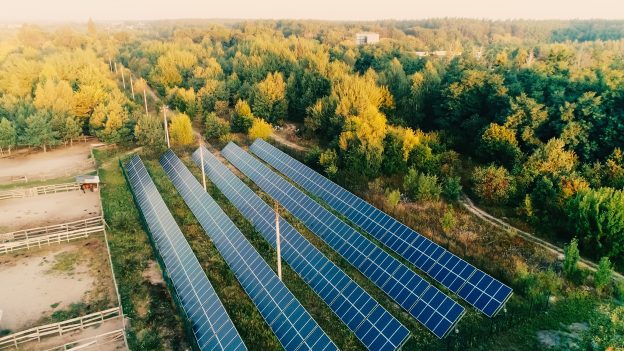
Amidst the continuously expanding topic of net-zero emission since 2021, various countries are successively proposing relevant paths and strategies, and businesses are encouraged in procuring green electricity and carbon credits due to ESG. However, the international scene has been full of rapid changes in the year of 2022, while the Russia-Ukraine war has prompted European and American countries to place high hopes on green energy, where the degree of financial support and political stability are also full of challenges.
Renewable energy such as solar and wind power has become an essential net-zero investment for various countries, which is why ISTI estimates that solar power, wind power, and energy storage are going to form a market scale of US$389.6 billion in 2022 under a growth of roughly 19.6%. Taiwan’s stable domestic demand for both wind and solar power has also yielded a 2.2% growth in 2022 that is likely to surpass NT$202.3 billion.
Wang Meng-chie, industry analyst of the energy division under IEK Consulting, pointed out that both the US and China are important leaders in renewable energy development, whose markets of wind power, solar power, and energy storage are actuating global industry development. Wang further commented that these two countries have invested considerable resources in the power of discourse for net-zero emission and decarbonization.
China remains as a major country in solar installations, and focuses on ground-mounted power stations as the largest application at 49%. With that being said, China has also grown by 74% in solar installations among commercial buildings at 39.4% under national policies that drive the establishment of rooftop solar, which is a new high over recent years. The country also supports the corresponding market with its own industry chain.
The US, due to the decrease of ITC, saw a drop in demand throughout 2022, though the subsequent Inflation Reduction Act may trigger a growth in solar power, wind power, and energy system installations during 2023. Wang commented that the US will also transition from its initial global deployment to evaluating on the development of a local industry chain.
However, the relevant manufacturing industries are all guided by China, where the supply chain and prices are closely concatenated. For instance, the prices of multi polysilicon are currently at a high point, and that various countries would need to invest additional resources to build a new industry chain. Wang commented that Taiwan can seize this opportunity by seeking chances of cooperation amidst the industry revitalization in Europe and America.
There are many challenges to overcome for the development of net-zero emission in 2022, such as how the crisis of natural gas supply caused by the Russia-Ukraine war has prompted various EU countries to once again inspect their own energy status and release aggressive renewable energy policies and targets. For the US, changes to its industry after the pandemic have led to a severe level of inflation, and the Inflation Reduction Act launched accordingly would propel green energy construction and industry development through tax instruments.
The promotion on development topics of renewable energy and hydrogen applications has become an advanced subject in recent years also due to the ambitious target of net-zero emission. In terms of hydrogen, the production method that utilizes electrolysis has become a noteworthy technology for the short term, though an integration with renewable energy or new power-generating technology is the current adoption for various countries for the purpose of attaining commercialization as early as possible.
(Cover photo source: pixabay)







